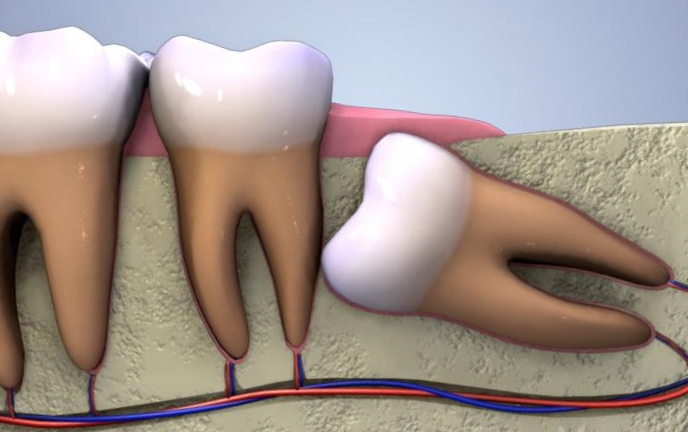 Wisdom teeth are the last teeth to erupt in the mouth. They are positioned last in the mouth and not all adults have them.
Wisdom teeth are the last teeth to erupt in the mouth. They are positioned last in the mouth and not all adults have them.
Wisdom tooth pain may occur if there not enough space in the jaws for them to erupt or they grow into the wrong position.
Common symptoms are pain, swelling around the gum, decay of the wisdom teeth or adjacent teeth and gum disease. The swelling can spread into the neck area with a risk of life threatening suffocation.
To prevent these symptoms it is advisable to rinse and gargle with salt water mouthwashes and to meticulously brush preventing food ingress and infection.
To diagnose a wisdom tooth disorder a dental visit to your dentist is necessary, but in the meantime analgesics such as ibuprofen will help reduce pain and swelling.
It may be necessary to have wisdom teeth removed.
Due to the risks involved with lower wisdom tooth removal such as nerve damage and paraesthesia it is advisable to seek the services of a specialist oral surgeon.